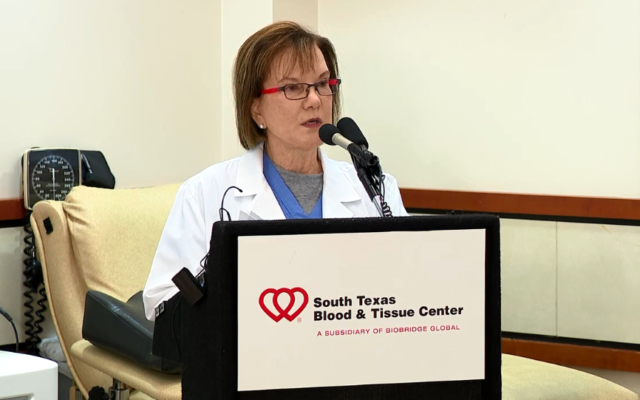South Texas Blood & Tissue Center says low blood supply is a local health emergency

SAN ANTONIO (KTSA News) — The South Texas Blood & Tissue Center said a low amount of blood donations has caused a local health emergency.
Officials said donation drives dropped off over the last year because of the global pandemic and that summer is historically the lowest donation period of the year despite the constant need for blood.
Blood center officials say blood donations were up 2% from last year, but the demand for blood has increased 20% and this has forced the center to ration the blood supply they currently have.
Dr. Samantha Gomez Ngamsuntikul, Associate Medical Director at the blood center, said the center is triaging blood by assessing daily supply, only sending it to hospitals that have an urgent need and are being forced to deny requests because of shortages.
“When patients are bleeding, it doesn’t matter what the bleeding cause is,” Dr. Donald Jenkins from UT Health/University Health System Trauma Care said. “It doesn’t matter if it’s an injury, intestinal bleeding, or an obstetric bleeding episode or some other thing. Blood is what those patients need to have their lives saved.”
Blood transfusions are one of the most common medical procedures done within a hospital environment and are only possible through donations. Blood transfusions are one of the most common medical procedures done within a hospital environment and are only possible through donations.
“We had a young woman, a mother of three, in a horrifying car crash over the weekend whose life was saved because she got blood in a helicopter on the way to us and blood in our trauma center,” Jenkins said. “We had a mom in the last three weeks deliver a baby who would not have been able to deliver that baby, or had a live baby, or stay alive herself without a life-saving transfusion that the volunteers here made happen.”
Dr. Joyce G. Schwartz, Blood Bank Medical Director at Methodist Healthcare System, said blood donations are critical to saving the lives of cancer patients, expectant mothers and transplant patients in addition to other emergency situations, and the donated supply has to be constantly replenished. Schwartz said donated blood platelets must be used within seven days and red blood cells every 42 days.
“Many of these individuals will not survive without blood products,” Schwartz said. “For these patients, for your friends, for your family members … and for those thousands of others in hospitals across our region every day, I’m asking our community to continue to give the gift of life.”
You can schedule a donation by visiting SouthTexasBlood.org or calling 210-731-5590, or call the UT Health/University Health System’s donor center at 210-358-2812.
You Might Also Like



